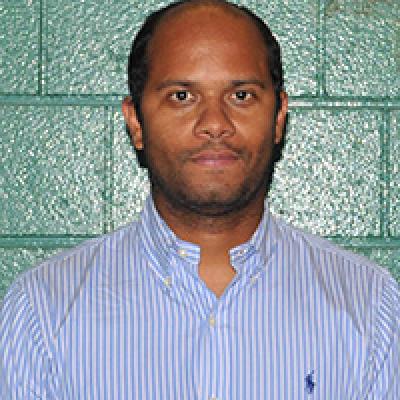Dr. Pedro Rivera
Dr. Rivera is an Assistant Professor of Latino History at Savannah State. He earned his Bachelor's degree with a concentration in African History from The City College of New York and his doctoral degree in History from Howard University. We talked briefly about his research at the CUNY Dominican Studies Institute Archives and Library, after he was awarded the 2015 Summer Library Travel Research award. Dr. Rivera is in the process of turning his dissertation into a book. His dissertation focuses on the first biographical study of Carlos Cooks, a Dominican-born Pan-African organizer who came to New York in 1929 and promoted the ideas of Marcus Garvey in Harlem, in the period between the New Negro and Black Power movements. Cooks, whose parents came from St. Martin to the Dominican Republic, championed the African heritage shared by blacks throughout the Americas and the Caribbean: his Pan-Africanism constituted a crucial progression in the development of black nationalism between Garvey and Malcolm X; the latter viewed Cooks as an elder and was strongly influenced by him.
Dr. Rivera came to the CUNY Dominican Archives and Library to look for information about other Dominicans who came to the United States around the same time as Cooks. He originally hoped to find evidence of other Dominicans in New York knowing and interacting with Cooks, but reports that so far, no such traces have surfaced. Nonetheless, Dr. Rivera's time at CUNY DSI advanced his aim of placing the life and work of Carlos Cooks within some broader cultural and historical contexts. He was gratified to learn the stories of a number of Dominicans who were in New York at the same time as Cooks and were, in some sense, on parallel trajectories--activists fighting for liberation from oppression in various ways, in different forms.
One of the activists was Nicolás Silfa, who came to the U.S. in the 1930s and engaged in activism against the Trujillo regime, organizing other like-minded Dominicans, some of whom were killed in New York by Trujillo's minions. Like Cooks, Silfa served in the U.S. Army in World War II. Though Silfa strangely appears to have no Wikipedia entry in English or in Spanish, Dr. Rivera found an article about him in a 1956 issue of Look magazine, "The Terrifying Story of New York's League of Threatened Men," preserved in the CUNY Dominican Library.
Dr. Rivera also made use of the CUNY Dominican Archives' extensive Tito Enrique Cánepa Collection. Cánepa, an artist born in San Pedro de Macorís, was not looked kindly upon by the Trujillo regime, and came to the U.S. in 1929; and like Cooks and Silfa, he later fought in the Second World War. "Cánepa was an artist of some note," Dr. Rivera argues. "He never sold any of his paintings, but they were well known in New York." Most importantly, "he never lost his Dominican roots."
Though Dr. Rivera found nothing about Dominican black nationalism, he sees the activities of Silfa, Cánepa, and other Dominicans such as Normandía Maldonado and Luis Guzmán--whose papers are stored in the CUNY Dominican Archives--representing "different types of Dominicans in the U.S. prior to the major exodus in the late 1960s and '70s" as engaged in related forms of liberation struggle.
When asked how important the CUNY Dominican Studies Institute is to his research, Dr. Rivera said, "My work could not be validated unless I went to these archives. It legitimizes my work—how could you do work on Dominicans and not do research there? It would be impossible to write a book on Carlos Cooks without looking at their collection. It gives the book a level of respectability as a well-researched account." In addition, he had nothing but high praise and deep gratitude for the staff. "I've read in people's acknowledgements sections in their books about how great all the staff was at a library or institution, thanking them by name. But I've never experienced that until now. It was the first time I felt really well taken care of. They really know the papers in the collections, have gone through them, and were able to tell me about what is in there. I will remember them on my acknowledgements page."
Last Updated: 04/21/2025 13:46
